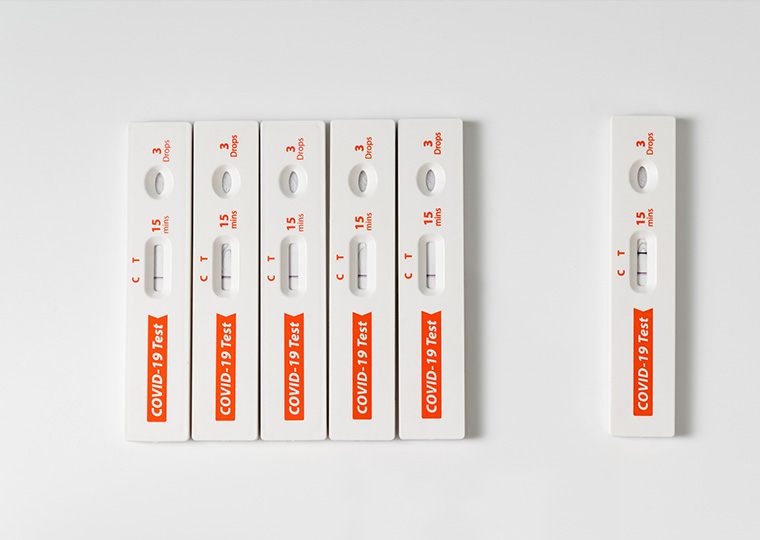Varying ideologies contributed to early spread in small nation
COVID-19 has offered the grim opportunity to study the interplay between a public health emergency and political beliefs, with some political and ideological groups less inclined to take disease-minimizing steps or to embrace vaccination.
In the U.S., however, complicating this picture has been the fact that each of the 50 states in effect built its own public health response to the pandemic. Israel, on the other hand, while also home to people of widely varying political, ideological and religious beliefs, met COVID-19 with a strong and unified national response. The approach helped the nation of about 10 million, after initial missteps, achieve low rates of infection and strong compliance with vaccination orders.
The cohesive approach also somewhat simplifies the study of beliefs’ impact on behavior during a public health crisis, according to Tel Aviv University’s Danny Ben-Shahar and Roni Golan, and UCLA Anderson’s Stuart Gabriel, authors of a working paper. The country’s population holds a wide range of worldviews, including the spectrum of politically left and right, as well as various ideologies within Jewish and Arab communities.
The working paper covers COVID-19 infections in Israel between March 15 and Dec. 20, 2020. Vaccination uptakes were calculated using information on first dose acceptance through March 7, 2021.
Israel, like many nations, has in more recent months suffered a surge of cases as the Delta variant moves through the population. Vaccination compliance, however, is relatively high, reducing sickness from the latest surge and Israel was among the first nations to plan for booster shots.
In Israel, the study finds, resistance to disease controls by pockets of political conservatives, Orthodox Jews and Arab ethnic and religious minorities increased COVID-19’s spread by hampering the effectiveness of social distancing orders and other government policies aimed at reducing illness and death. People in communities skewing left to center politically, generally, were more compliant and less likely to get sick.
Orthodox communities showed the most steadfast opposition to virus controls, as well as, consistently, the highest rates of infection, the study finds. Whereas initially reticent left-leaning groups quickly accepted the shots when outbreaks threatened their immediate communities, vaccination uptake in Orthodox communities remained low. In Orthodox Jewish areas, “we found sharply elevated likelihood of disease transmission even as infection rates rose, suggesting the durability of belief and related practice norms even when confronted by growing and immediate local health risks,” according to the study.
That said, Israel’s experience suggests that strict lockdowns were particularly effective in controlling disease spread in communities where residents remained resolute in vaccine opposition. Although the country’s strict nationwide stay-at-home orders reduced infection rates in all communities, they fell sharpest in Orthodox and other neighborhoods where vaccination rates were low, the study finds.
The study controlled for multiple factors that could affect infection and vaccination rates, including socioeconomic differences, housing density, share of non-voters and access to services. With these things equalized, the study still found residents of left-leaning and centrist statistical areas (like census tracts) associated with lower odds of infection than Orthodox communities, and to a lesser extent, than Arab and politically conservative communities.
Results underscore the importance of targeted messaging and treatment among divergent belief groups so as to enhance the efficacy of policy measures for pandemic management and related disease control.
Featured Faculty
-
Stuart Gabriel
Arden Realty Chair; Distinguished Professor of Finance; Director, Richard S. Ziman Center for Real Estate at UCLA
About the Research
Reiter, P. L., Pennell, M. L., & Katz, M. L. (2020). Acceptability of a COVID-19 vaccine among adults in the United States: How many people would get vaccinated? Vaccine, 8(42), 6500-6507. doi: 10.1016/j.vaccine.2020.08.043
Ben-Shahar, D., Gabriel, S., & Golan, R. (2021). Belief Disagreement and Covid-19 Health Risk: Virus Incident, Vaccine Uptake, and Closure Response in Israel.






